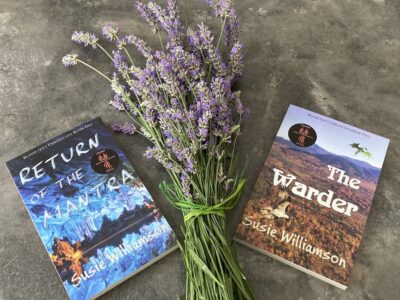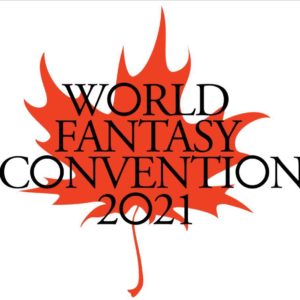
Last weekend involved a trip to Montreal, Quebec, (from the comfort of my writing room via zoom) for World Fantasy Convention 2021. What a great weekend, not to mention a great opportunity to show off my new bookshelves – such a relief to finally be able to unpack my books! With a half-hour reading slot, I was able to share a taste of The Warder, giving a glimpse into the extraordinary lives of all three protagonists. It’s always wonderful to see captivated listeners, and hear how your words hit home. Thanks to all those who came along to listen.
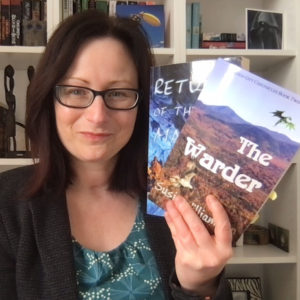
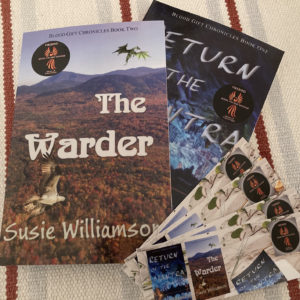
It was also wonderful to have the opportunity to join in with a couple of panels. The Classics panel reflected on older works, discussing how they hold up to the contemporary lens. It’s astonishing to think of the origin of stories like Dracula, inspired by a sadist, torturer of women, yet still prevalent in popular culture today. My favourite take on vampires is Octavia Butler’s Fledgling, (reviewed in an earlier blog), not least because she takes the opportunity to explore power dynamics.
H.G. Well’s The Invisible Man is a theme that stands the test of time. Invisibility used to add power to men, god-like power giving the ability to act with impunity, lends itself to the theme of the recent remake which tells a haunting tale of domestic abuse. As long as onlookers stay silent, look the other way, aid and abet, perpetrators of domestic abuse are able to act in an absence of scrutiny, akin to the powers of invisibility. A really powerful message, as well as a glimpse into a world of constant surveillance, and warnings of technology made without foresight of damaging consequences.
And no conversation of the classics would be complete without Mary Shelley’s Frankenstein, although for me I was thinking more about the experience of the writer. Eighteen years old when she started writing it, probably inspired by grief, published it around 1818 anonymously out of concern she might lose custody of her children. With scepticism over how a woman could have come up with something so hideous, she endured undermining critique and condescension. And through it all she gifted the world with a remarkable story, delivering messages that monsters are not born they’re created, and that famous cautionary tale that science can go too far.
Then onto the Gendering Genre panel.


From the dubious representations of women in western fairytales (evil witches, evil stepmothers, damsels in distress to name a few), to the prevalence of ‘strong’ kickass women and girls, scantily clad and attractive to the male gaze, to discussing ways conventional expectations can be subverted, and stereotypes challenged. Diverse representations, non-typical heroes, challenging stereotypes, are all huge considerations for me in all aspects of work, so needless to say I loved the panel and was glad to be able to share a sample of my well-loved reads that tick all the boxes. Click here for a few of my favourite complex heroines in SFF, who definitely challenge stereotypes.
Huge gratitude to the organisers for pulling off such a dynamic and complex event, bringing together the in-person and virtual world.
And lastly, the previous week was a quick trip up the motorway for a day of sci-fi/fantasy at BristolCon. More readings, more panels, this time looking at our favourite, and not-so-loved empires in the genre. With each discussion I join in with, I’m reminded what I love about speculative fiction: with its ability to critique, challenge, push back against convention and harmful narratives, it literally paves the way into new frontiers.
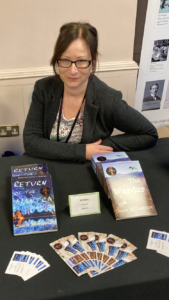
What are you reading?
